#how could you mr. pratchett
Text
Nothing destroys Gen X motherfuckers who read the Discworld novels that were out when they were a kid like telling them what happened to Mort in Soul Music
I told my mum he was killed offscreen with minimal fanfare and she looked like she’d just been stabbed.
#mort#discworld#discworld mort#terry pratchett#how could you mr. pratchett#i love these books but like#we were DEPRIVED#adult mort#a wizard and a queen having married life#this is one reunion that should not be overlooked
12 notes
·
View notes
Note
Goodmorning, Good evening and Goodnight Mr. Gaiman, Depending on where you are. I just read your and Terry Pratchett’s book Good Omens, along with watching the TV show, and I’m absolutely in love with it.
So I’m doing a book talk in my English class on it, and I was hoping you could answer a question.
How do the authors relate to the novels characters or themes?
Thank you!
We made them because we cared about them.
955 notes
·
View notes
Text
Another thing i absolutely adore about good omens is how high the stakes are. How much danger the arrangement puts them into, how risky it is, for Crowley to be in possession of holy water. How he could be destroyed, just for having entertained the thought of helping an angel. And still. It all seems to be secondary to them, bc the only thing which matters is each other and the way they keep on “accidentally” running into each other.
The arrangements could get them banished, shunned or destroyed? It’s no matter, as long as they can keep meeting in odd places to discuss who will take on the next mission.
Crowley runs the risk of being seen as a traitor? It’s such a small thing, in comparison to how the angel’s eyes shine at the mere mention of crepes.
Crowley asks for holy water, for the power to destroy what Aziraphale holds most dearly? Out of the question, except. Except that it pulls them appart, it makes them say dark, dishonest things. So Aziraphale complies, bc he can’t bear not to. He can’t stand the though of Crowley doing this without him. So he gives in.
It’s all a matter of life and death. Complete and utter annihilation. God’s wrath and the end of all things. And still. All they care about, all which seems to matter, is the way they care for each other. What a wonderful love story you wrote, mr pratchett and mr gaiman.
#btw i do mean love in the large sens#this is a not a romantic love is the only kind of love kind of blog#anyways my brain is melting and will be every day until july 28th#it’s all so obvious#and yet it’s devastating once the realisation hits you#the love is just#no words#i adore these idiots with all my soul#good omens#ineffable husbands#aziraphale#crowley#azicrow
443 notes
·
View notes
Text
Another Book Recommendation for 2024
Good Omens by Neil Gaiman and Terry Pratchett
Seems obvious and possibly pointless for the Tumblr audience, but hear me out.
CONTENT WARNING: mention of dark moments in LGBTQ+ history. If you would like to avoid, skip Point #1.
The below notes reflect a discussion concerning the book Good Omens I had with a group of my undergraduate interns over a couple of lunches last semester. Given that they all loved the show, I had assumed they had all read the book. Not all of them had, and for those that did, their knowledge of when the book was originally published and an understanding of its historical context was surprisingly limited. I thought that others may be interested in these points, and so am sharing them here.
1) *SKIP TO AVOID CONTENT WARNING* To understand the impact of Good Omens when it was published in 1990 on the LGBTQIA+ community, it helps to understand the cultural environment at the time of its publishing, at least in the United States.
The book came out towards the end of the height of the AIDS epidemic (1981 - early 90s). I can not stress enough how terrifying this was for the LGBTQIA+ community to live through. People were afraid - of dying, of watching loved ones die, of being separated from their loved ones as they died, of being ostracized, of being denied medical help, of being attacked and beaten. While there was a short fluorescence of nominal acceptance of the LGBTQIA+ community during the 1970s, the societal response to the AIDS epidemic was a huge step backwards. People became cruel(er), whether out of fear or ignorance or opportunity.
Good Omens came quietly onto the scene during this time, providing an alternate universe in which a gay-presenting angel (and his gender-fluid demon friend) could live in a world without the AIDS crisis. At the same time, this angel did live in fear of his world literally ending, and really would like to have just gotten back to his comfy chair and his Regency silver snuffboxes. Escapism reading at its best, really.
In addition, the book was published in 1990, so before many of the cultural moments that helped lead to social change but are now taken for granted. Such as . . . .
-Freddie Mercury died of AIDS in November 1991 (which, by the way, means there was a very short window of time where people were reading Good Omens while he was still alive).
-Sir Elton John came out in 1992
-“Don’t ask, don’t tell” became official policy of the U.S. Military in 1993 (finally repealed in 2011)
-the establishment of LGBTQIA+ centers on college campuses surged in the mid-1990s
-Ellen came out on her show in 1997
-Will and Grace first aired in 1998
-Matthew Shepard was murdered in 1998 (the Federal Hate Crimes Prevention Act bearing his name was not passed until 2007).
2) The book is queer coded for 1990. As queer coded as the show is for current times.
I have heard multiple comments from GenZ students along the lines of ‘there is nothing queer about the book’, and I have read commentary that Neil Gaiman caved to fan pressure in modernizing the script for the show. But I have also heard comments from GenX peers, including one of whom said “it was the gayest book I read in the 90s”. I have highlighted 15 passages in my teaching copy of the book that would have been queer-coded in 1990, 12 of which would go unnoticed today as far as I can tell based on discussions with many of my Millennial and GenZ students.
It is important to keep in mind that the vocabulary of the 1980s and 90s relating to the LGBTQIA+ community was exceedingly limited; Mr. Gaiman and Sir Pratchett worked within this limited vocabulary, and were working within the stereotypes of the times, to portray Crowley and Aziraphale. And readers are meant to love them. Possibly more importantly, the derogatory comments concerning Aziraphale come from unlikable characters, and so the reader not only ends up feeling defensive of the angel but also does not want to be associated with those who hold negative opinions of him. I can think of few better ways to create social change.
In terms of the show adaptation, whenever I watch a movie or show based on a book, my first concern is whether or not the adaptation makes me feel the way the book did. I am not an artist, so I do not know how one translates the written to the visual and I do not envy those attempting to do so. But I do know that successful adaptations are almost never a one-to-one translation. What I can say in this context is that, to me, the show does feel like the book in terms of its themes, its humor, its timely social commentary. So whyever and however Mr. Gaiman updated it, I would argue it was successful.
3) It is my understanding that Good Omens is the first book written by cisgendered heterosexual males for a general audience that portrays a gay-presenting character and a gender-fluid character as main characters in a positive light that does not end in a tragic way. This is huge. This is Captain Kirk and Uhuru’s kiss huge.
Historically, LGBTQIA+ people rarely get positive representation in mainstream media. Rather, LGBTQIA+ characters in literature were often portrayed as villains in early writing, and are often used as comedic relief in more recent work. When there is a sympathetic main character, their story usually ends in tragedy. While tragic stories are very much a reality for many LGBTQIA+ people, it is incredibly important to also have stories that do not end in heartbreak or death. And it is also incredibly important for LGBTQIA+ characters to be part of the norm in main stream story telling as this leads to broader social acceptance. Good Omens provided LGBTQIA+ readers with a sense of belonging in the greater world, while ‘normalizing’ the happy existence of LGBTQIA+ people to a broader readership. This type of representation, presented by heterosexual white cisgendered male authors (at the top of the power structure in 1990) is a key moment in the slow but steady grind leading to social change.
In summary, read the book. Whether you are a fan of the show or not, and regardless of your generation, this book has a lot going for it. Above and beyond its importance to the LGBTQIA+ community, the book includes broader commentary on religion, good vs. evil, right vs. wrong, and identity in general. The menacing humor of Gaiman and the loving satire of Pratchett is a combination that is unequaled. The book is funny, thought-provoking, well-written, and has a lot of great characters above and beyond a particular angel and demon (who are only in about 1/3 of the book). And as you read it, understand its historical context, and love it for the role it played in getting us to this cultural point in time.
42 notes
·
View notes
Photo
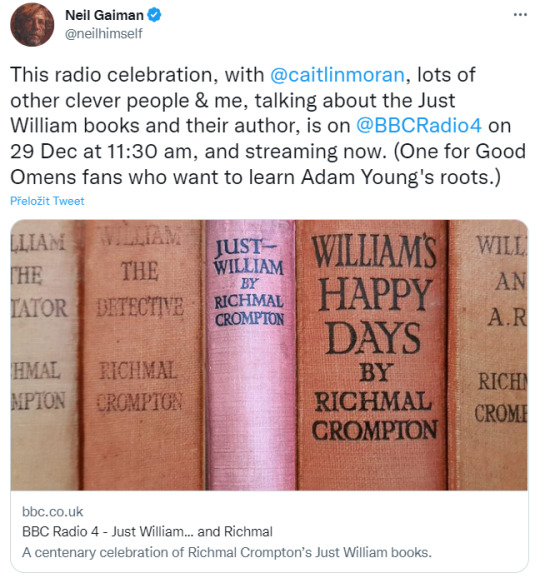
link, about how the Good Omens book was inspired by Richmal Crompton’s Just William books, the Good Omens part starts at 7:38 :)
I: William’s influence stretches across genres. Neil Gaiman and Terry Pratchett’s apocalyptic novel Good Omens published in 1990 began life as an thought experiment - what if William wandered into 1976 horror film The Omen, in which an American diplomat finds his infant son swapped for the Antichrist.
Neil: If the baby swap had just been a little bit messier and the kid had gone off somewhere else, he would have grown up as somebody else. And then there was a beat and I thought: I should write it, it will be called William the Antichrist. And I loved the idea of William the Antichrist, I started writing it, sent it to a couple of friends, one of whom was Terry Pratchett, who called me up a year later and said, ‘Yeah, that William the Antichrist thing, you're doing anything with that?’ And I said, ‘No, I've written 5000 words of it and now I'm up to my eyes in Sandman.’ And he said, ‘Do you want to do it together?’
I: As Neil Gaiman explained to me, it turned out to be an inspired pairing.
Neil: I think for me and for Terry, it was such a delight to just go, okay, here is this thing that formed us. Here is a thing that shaped us. Here is an author whose plotting and whose prose style actually built what we do, and now we're going to go back with love. So the first draft of Good Omens was a William book. It was absolutely in every way it could be a William book. It had Violet Elizabeth Bott, it had William and the Outlaws, it had Mr. Brown.
I: Over time, the writers realized that they would have more creative freedom if they, in their own words, filed off the serial numbers. William and the Outlaws becoming Adam and the Them. And while the novel spins off in ineffable directions undreamt of by Richmond Crompton, the spirit of William is never far away.
Neil. The joy for me was occasionally just getting to construct perfectly William's sentences. I do remember the one of him when Anathema tells him that she has lost a book, he tells her that he's written a book. It was about a pirate who became a famous detective, and it was eight pages long,and particularly it would cheer her up. And then he says he'd he'd given it to one of the other kids, probably Brian. Brian said he'd never been so cheered up. And that's a William sentence.
I: Good Omens would go on to huge success, not only as a novel, but also a blockbuster TV series, as well as an audiobook read, of course, by Martin Jarvis. Martin has been reading William on the radio since the 1970s.
#good omens#neil gaiman#terry pratchett#richmal crompton#just william#william the antichrist#btb#fun fact#interview#neil interview#adam
337 notes
·
View notes
Text
Over-analysing the books we saw referenced in Season Two (which I watched all in a go last night from 11pm to 4am and therefore am a little hazy on). If someone has already done this I bow to thee I just couldn't find you.
It's not reflected in my blog but one of my main special interests is Good Omens (and has been since I first read the book, a bit before season one was released) y'all I am ugly crying over the season two finale. If I've missed any books I'll just edit I guess I don't have access to the show anymore so I can't double-check anything. I KNOW Muriel was reading a book that wasn't The Crow Road but I cannot for the life of me remember what it was.
The Colour of Magic - Terry Pratchett (under I for In): On a surface level, it's a fantastic little nod to Mr Pratchett, the book that started the Discworld, and, to top it off, one of the best covers in existence. Funnily enough the same edition we always stocked when I worked in a bookshop but that's not important.
On a deeper level, think about the plot in bare-bones terms. Incredibly naïve tourist from an other-worldly place shows up in a grimy but incredibly magical city with a very odd box and spends his entire holiday with a wizard who is bad at magic. It ends with the tourist floating off into space to go see other worlds. Sounds familiar, right? I'm shaking this season like a small child with a maraca and I am chewing the plot until it is tasteless.
The Crow Road - Iain Banks (under I for It): Look, this one is so obviously significant that multiple people have done it already but I'm adding layers. Crowley gives it to Muriel in the last episode, I'm sobbing, but it's actually first referenced by Gabriel when he's "sorting". The tile is a fairly common metaphor for death, such as he's away the crow road. Other than the fact that it's literally part of Crowley's name, crows are a death omen. He gives it to Muriel for so many reasons and I don't know how it was intended originally but they're curious about humanity and The Crow Road contains one of the most fundamental parts of being human - asking too many questions.
Also, The Crow Road contains a lot of themes centred around death, mystery, and quite a bit of questioning of religion. It could be interpreted as a tell towards Crowley's real feelings about the finale. Metatron is death for him, as a demon, and he's just taken Aziraphale away to "chat". Remind me to actually write down my interpretation of the finale some time.
Pride and Prejudice - Jane Austen (under I for It): See, this one has actual plot relevance and therefore is explained in the show so I don't really think it needs an explanation. However, it is a neat little plot device to show how Aziraphale and Crowley have had very very different experiences with, and therefore perspectives on, Jane Austen herself. I think that's a pretty good way to show how they think and differ from each other in their shared experiences. Also, spitballing here, Crowley is Pride and Aziraphale is Prejudice. ("Of course you turned down Hell, they're the bad guys. Heaven is... good!")
A Tale of Two Cities, Book One - Charles Dickens (under I for It): Come on. This wouldn't need an explanation except, once again, chewing here.
"It was the best of times, it was the worst of times..." is the only bit Gabriel reads out loud, but the rest is along those lines (give it a read, it's fun). All one sentence. I don't really think it needs a huge amount of explanation, except that to me Dr Manette is Gabriel. Quite a bit of the first book is about his release from jail (and, to top it off, he was there because he reported the abuse perpetrated by members of the aristocracy and was put away under a lettre de cachet, something signed by the King and at least one of the King's ministers which could not be appealed). He's briefly taken in by a former servant (who goes on to be instrumental in the Storming of the Bastille) and the man's wife, who own a wine shop together. I am going insane.
No, I did NOT forget Good Omens (under I for It): History repeats itself over and over and over -
I need to go drink some water but Mr Gaiman sir how'd I do.
#i hold no illusions mr gaiman himself will see this lol don't worry#i am rambling i am raving and also a secret third thing#which is ranting#good omens#good omens season two#neil gaiman#good omens season two spoilers#big spoilers#book analysis#crowley#aziraphale#gabriel#muriel#ineffable idiots#i mean#ineffable husbands
34 notes
·
View notes
Text
It was the problem of all really secret societies. They were secret. How many members did the Turtle Movement have? No one knew exactly. What was the name of the man beside you? Two other members knew because they would have introduced him. But who were they behind these masks? Because knowledge was dangerous. If you knew, the inquisitions could wind it slowly out of you. So you made sure you didn’t know. This makes conversations much easier during cell meetings and impossible outside of them. It was the problem of all tentative conspirators throughout history: how to conspire without actually uttering words to an untrusted fellow conspirator which, if reported, would point the accusing red hot poker of guilt?
Terry Pratchett, Small Gods
...............................
another one of my favorite. this is either druna or friet's silent commentary on the reality of their situation. It is also brilliant and vivid description by Mr. Terry Pratchett on how conspiracy and secret societies work.
#terry pratchett#discworld#discworld: small gods#druna#friet#gnu terry pratchett#heli and discworld#just let me gush for a while#now back to regular shtposting
27 notes
·
View notes
Text
Ten Books to Know Me:
@chubsthehamster put out a "participate if you want to" call, and I fucking love books, so why not!
1. Johnathan Strange and Mr. Norrell, by Susanna Clarke - Read this first in high school and it rewired my brain. Dense, intricate, a November day of a book, it is about the inequities of class, race, gender, and also about the dry stone wall down the lane and its intimacy with the ivy that's grown over it for the last century. There are magicians and academic confrontations.
2. Food in England, by Dorothy Hartley - Read this a year out of undergrad. This is the book that convinced me that I could actually do something worthwhile with my interest in history. It was also fundamental in kicking a few chunks out of my ivory tower, but that's probably a personal take-away rather than anything essential to the book. Learn a few hundred small practicalities that may or may not be applicable to modern life; you decide.
3. Sabriel, by Garth Nix - The first book that spoke to baby's latent goth tendencies. The worldbuilding still lives in the back of my head. Made me interested in WWI history. Read it in middle school, I think? It was such a breath of fresh air, and I admired the protagonist and her self-discipline and self-reliance so much. Probably the first book that made me really worry whether the characters would survive until the end, and boy howdy was that formative. Zombies, quests to save fathers, learning that the legacy you thought was a burden is actually your calling.
4. Ombria in Shadow, by Patricia A. McKillip - Read in undergrad, I think? I reread it a couple times a year. It's a go-to story for when I need something comforting and decadent. I love the gauzy quality of the worldbuilding, the understated approach to very real-world dangers. A royal bastard, a former royal mistress, and a sorceress' apprentice race to protect a child king and save the and the living soul of a city.
5. The Sandman, by Neil Gaiman, et al. - This story got me through my late teens and early twenties. Exactly the right flavor of tragedy to grab my brain and shake it like a maraca; fundamentally changed how I look at stories and narratives. Person-shaped cosmic mechanism denies personhood, falls face first into the hole he's been digging for himself for a billion years, hitting every consequence on the way down, and finds a morsel of peace at the end.
6. Strange Tales from a Chinese Studio (聊齋誌異), by Pu Songling (蒲松齡) - I read this first while doing research for a fanfic and came away hungry for every bit of "classic" Chinese literature in English translation I could find. I've always had a fondness for supernatural anecdotes (The Fairy Faith in Celtic Countries, by WB Yeats, etc), but this is on the list because it was the initial experience in an ongoing foray into classic and modern East and Southeast Asian literature.
7. Underland, by Robert Macfarlane - Read this a couple years ago. Everything you ever and never wanted to know about caves and being under the earth. The texture of Macfarlane's prose is unlike anything else, and he spends 500 pages leading you in and out of the dark.
8. Night Watch, by Terry Pratchett - This is my compromise instead of just listing every Terry Pratchett book. I read this when I was 12, and I mean it in earnest when I say it shaped how I think to this day. Pratchett's work is a load-bearing beam in my brain. Another grey book, but also lilac.
9. A People's History of the United States, by Howard Zinn - Okay look, LOOK, I know what you're thinking, but I read this when I was a teenager living in an extremely conservative pocket of a very liberal state. It made me think, which I was good at avoiding because school came easy to me and I usually didn't have to engage my brain at all to have the right answers. I wish with all my heart that I could write to the teacher who assigned it, because it was the very first time anyone had ever made me read history outside a history textbook. I resented that man so much at the time, but I owe him my current career.
10. Stiff, by Mary Roach - Read this as a teen and finally got answers about death I hadn't gotten in a lifetime of religious education. I think I actually snuck it into Mass, because I have a distinct memory of cramming it between the cushion and arm of a pew. Sparked an interest in death and human remains that lead me closer to where I am today.
Please consider yourself tagged if you'd like to participate! And tag me back so I can add more books to my tbr list, please! <3
54 notes
·
View notes
Text
As most everyone who circles around the internet knows by now, the Good Omens fandom exists. And it has gone rather feral since the release of S2. And I want to talk about that a bit, because while I’m sure it all very eye-roll inducing from the outside, there are a myriad number of reasons WHY this book and this show in particular have resonated the way they have. I grew up in a very religious household, Baptist, fundamentalist Baptist in fact. Nowadays considered extreme even by a portion of the Christian community. When I was growing up there was “The Way Things Are”. The “TRUTH” and there was the world from which you must be sheltered at all cost so as not to lose your “innocence” (please forgive the gratuitous use of parentheses through this). I was young when the novel was released, 7 and I did not discover it until I was a bit older, round about the time I started managing to get peeks at the wider world (Star Trek was one of the first glimpses I had) and it began to raise questions. Something was amiss in the version of morality that I had been taught, vs the actual world and morality as it pertains to the conundrum of humanity. Morality was not black and white. Good and evil, right and wrong, these were not a thing that could measured by the yardstick I had been given. And then, Good Omens. In the pages of this book (that I most decidedly did NOT have, it lived at the library and was read in bits and pieces) I found language for what had been only a tiny spark at the back of my mind. Language that that laid out my questions and discomfort in a way I didn’t know how to express. Language that drove me to know more, to learn more, to ask more. And in doing so I set my mind free. So many of us come from a background of religious trauma. We struggle SO much to make sense of what we intrinsically KNOW to be good and just against what we were indoctrinated into growing up. Here we find a mirror and then we are given the means to look beyond it. Good Omens is, at its heart a love story. But not only, or even just, that of an angel and a demon. It’s about being a lover of truth. It’s about love not in spite of flaws, but because of them. It’s about loving humanity and ourselves and all of the extremes and dichotomies that we are made up of. The truth is that humanity is not perfect. Far from it, but the agony and the glory and the sheer unfiltered raw mess of it all is what creates the human experience. These extremes are where art and music and fast cars and good food and wine and the perfect cup of coffee and LOVE is born. And morality, true morality is rarely wholly good, or wholly evil. It exists in the liminal spaces that we all dwell in. Good Omens allows us to see that, to accept it in the world and in ourselves and to love, not in spite, but because of it. So thank you Mr Gaiman, and Sir Pratchett who now wields his pen in the stardust. You have given us more than you perhaps you knew.
#good ineffable omens#ineffable idiots#good omens#books#ex religious#religious themes#religious trauma#growth#terry pratchett#niel gaiman
17 notes
·
View notes
Text
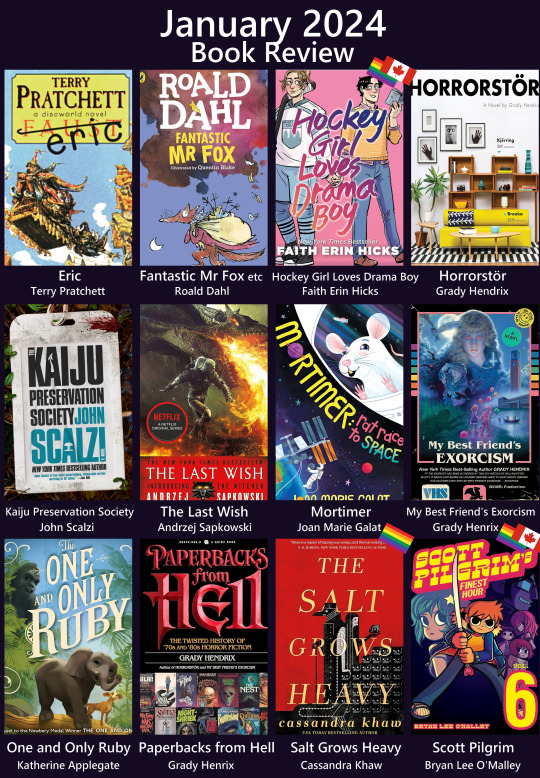
Found some excellent horror-related and horror-adjacent books to read this month! Not a common genre for me, so this was fun. Really can't recommend Grady Hendrix as an author enough, Horrorstör was definitely my favourite novel from this month
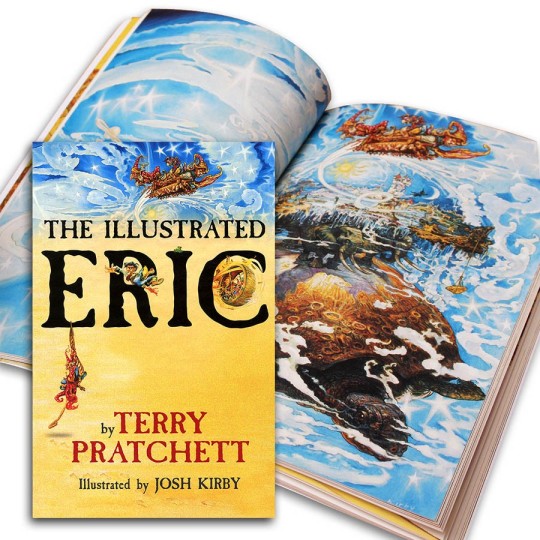
Eric
I hate saying it because I love the Discworld and Terry Pratchett is easily my favourite author, but man Eric did not do it for me. You could see some good bones in it, but as far as I’m concerned all the interesting bits that appeared were done significantly better in later books. It had some humour moments, but the only bits that I really enjoyed were when the Luggage was around.
This story followed a young, teenaged, would-be demon summoner who, instead of summoning a demon, accidentally winds up with the incompetent and fearful wizzard Rincewind. Obligated to answer this kid’s wishes, they end up bouncing through time and space while attempting to survive what each wish had to throw at them.
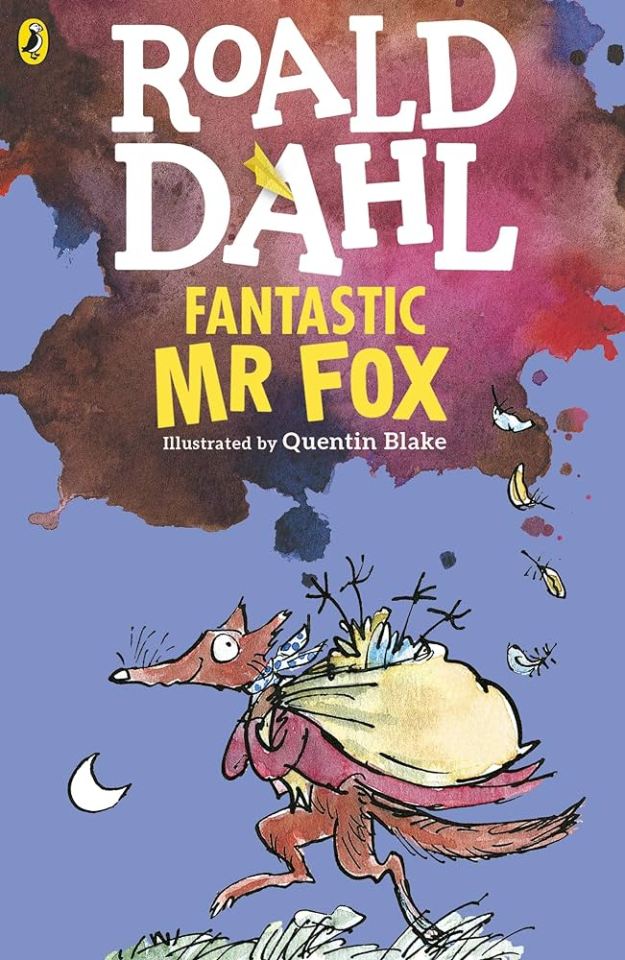
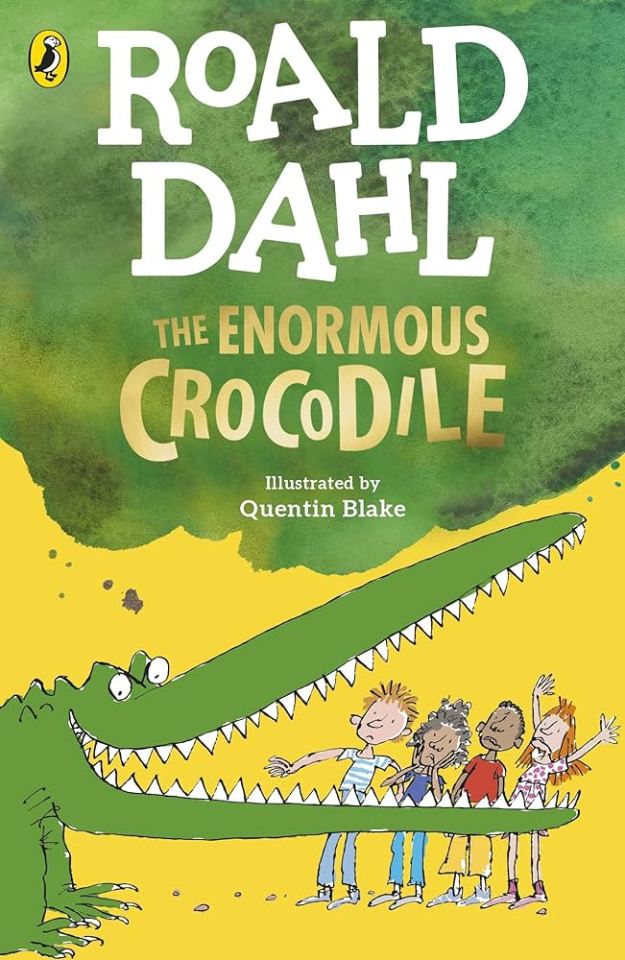
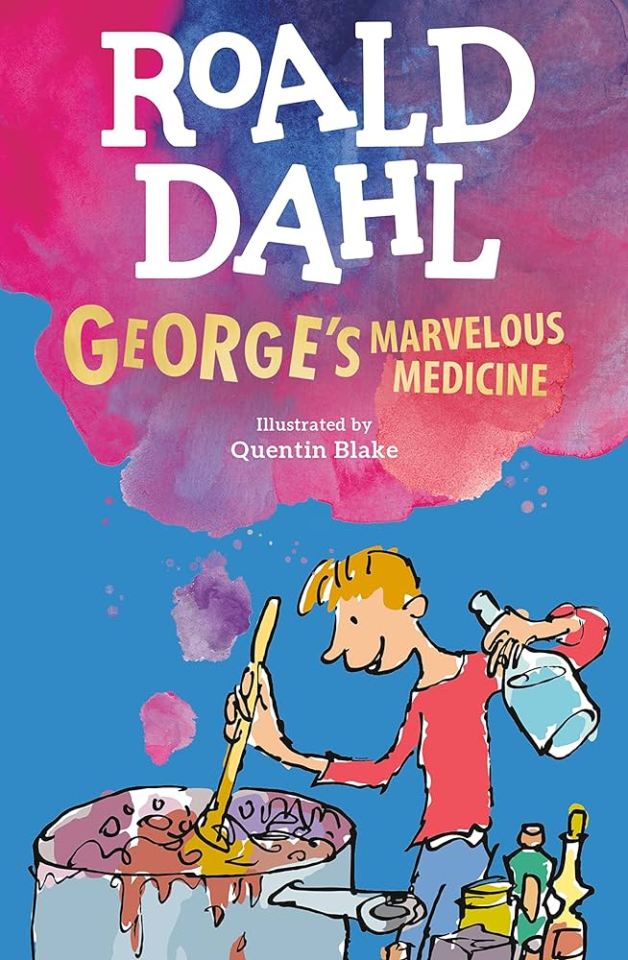
Fantastic Mr Fox / Esio Trot / George’s Marvellous Medicine / The Enormous Crocodile
I went on a Dahl kick this month, I wanted to work through some of his shorter works that I’ve never bothered to read before. All of them were honestly delightful, I had a blast. Esio Trot was probably the weakest of the lot, but the other three were so much fun. The Fantastic Mr Fox may be my favourite just by virtue of being the most fleshed out, but listening to The Enormous Crocodile be read by Stephen Fry is an unparalleled experience.
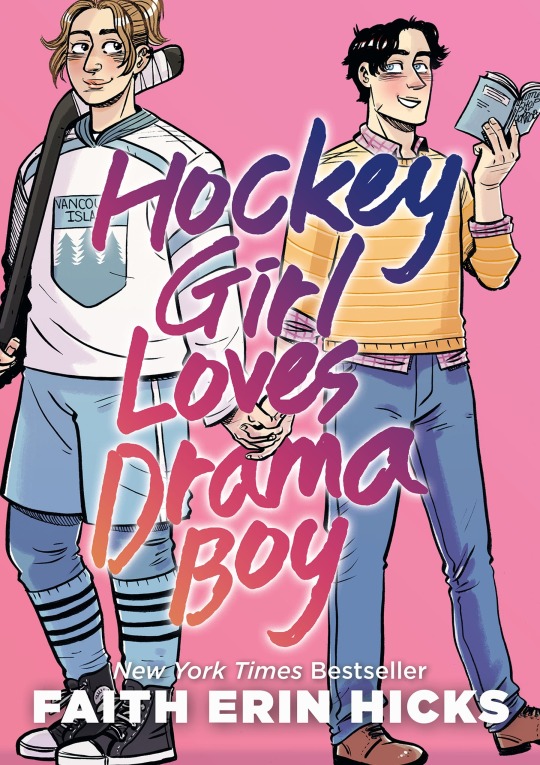
Hockey Girl Loves Drama Boy
A story I enjoyed more than I expected. I have a strange soft spot for hockey narratives, but that might just be the Canadian in me. Alix’s one true love is hockey, it’s the one place she feels competent and happy, but her team captain is making the space increasingly hostile until, unable to take the bullying, she strikes out and punches her captain. Shocked by her own violence and given an ultimatum by the coach to get her temper under control, she ends up going to popular and poised Ezra, hoping that he could show her how to deal with harassment without losing her cool in a way that scares her.

Horrorstör
Easily the best book I read this month, this book was amazing, I can’t recommend it enough. It’s a “haunted house but in a knock-off Ikea” and I mostly picked it up as a joke because the premise sounded hilarious. But I was familiar with the author (I’d read The Southern Book Club’s Guide To Slaying Vampires a couple years ago) and trusted him to do something interesting with the premise. And wow. Just wow. It is very much a classic, grisly, nauseating horror premise, but in a way that explores capitalism, exploitation, and treatment of prisoners and the mentally ill. It’s been a long time since I read a book that actually gave me chills, but I had to put this book down and walk away from it occasionally, it was intense enough.

The Kaiju Preservation Society
As a Pacific Rim lover, this book was everything I’d ever wish for it to be. It’s such a love letter to the kaiju genre as well as environmental conservation, and it’s speculative biology is fascinating!
After being fire from his job at the beginning of the Covid pandemic lockdown in New York City, Jamie Gray is barely making ends meet by acting as a delivery driver. He doesn’t know how he can possibly continue on like this, until he runs into an old friend who offers him a strange and intensely secretive job offer. With nothing to lose, Jamie agrees and finds himself on an alternate Earth, helping to study creatures that he only knows from campy monster movies, now very much real.
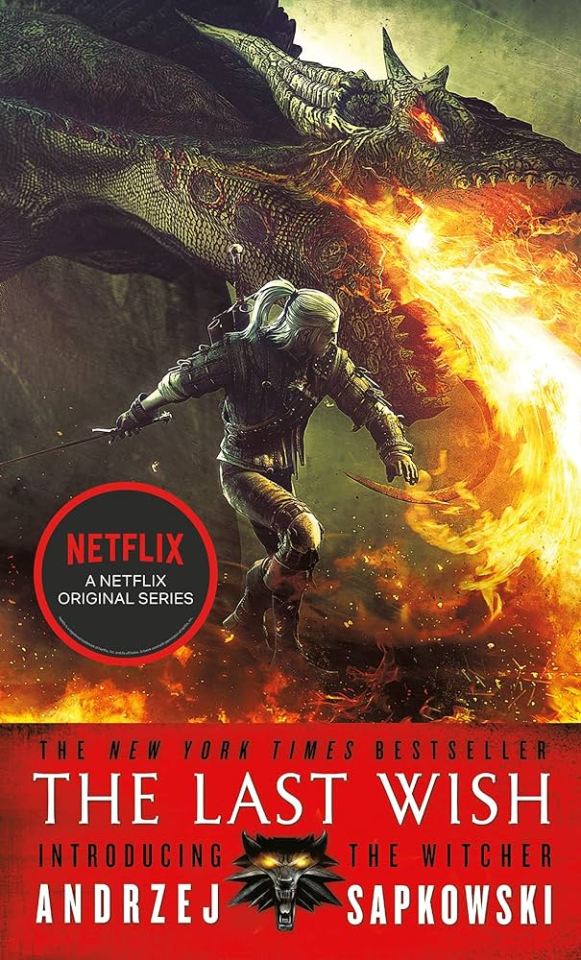
The Last Wish
Felt an urge to reread a Witcher book, so I’ve been picking my way through the short stories. They continue to be a lot of fun, and it felt good to reconnect with the original narrative voice again after reading a lot of fanfiction over the years. For anyone who has someone existed post-Netflix version without picking up the general premise: Geralt of Rivia is a "witcher", a person who was specifically trained to wield weapons and magics to hunt dangerous monsters that threaten humans. This is a collection of short stories that show Geralt on some of the various hunts he's had during the decades of his over-long life. (It's significantly better than the Netflix version, very much worth the read if you like classic high fantasy and/or fairy tale retellings.)
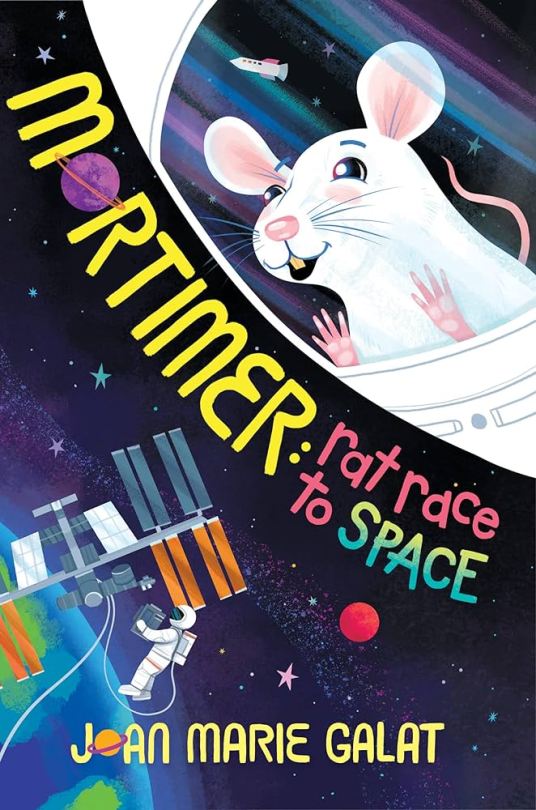
Mortimer: Rat Race to Space
A very dull youth novel. Mortimer is a lab rat at Houston who has aspirations to go on the space program and prove that rats are better suited for colonizing Mars than humans. If you’re a seven year old who wants to consume space facts, this is the book for you. For everyone else, it’s a bit of a slog.
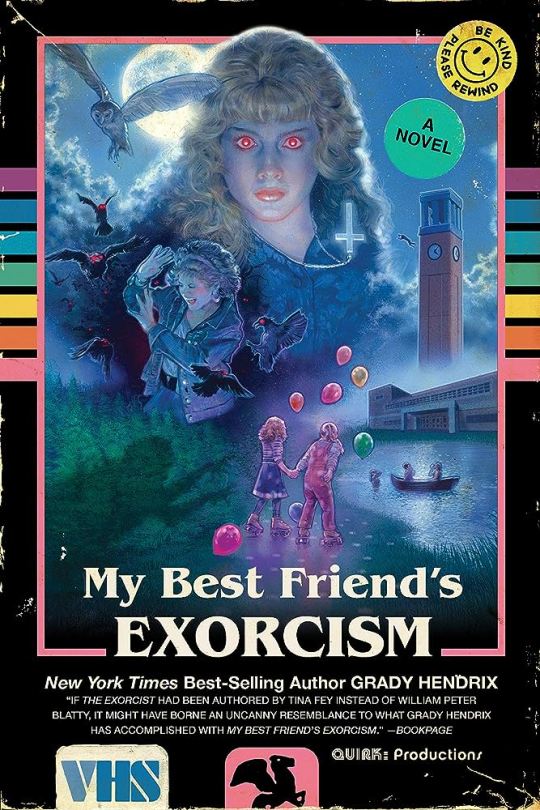
My Best Friend’s Exorcism
Another Grady Hendrix book. This book was undeniably well-written, just as masterful as his others, but I didn’t enjoy it as much. A bit too much high school narrative and not enough all out horror. The conclusion was pretty decent, but the rest was… fine. A fun love letter to the 1980s though as you learn about two best friends and how they grow up together. ...A bit of a debate whether or not it warrants a queer marker or not, I'm not even going to make that attempt.
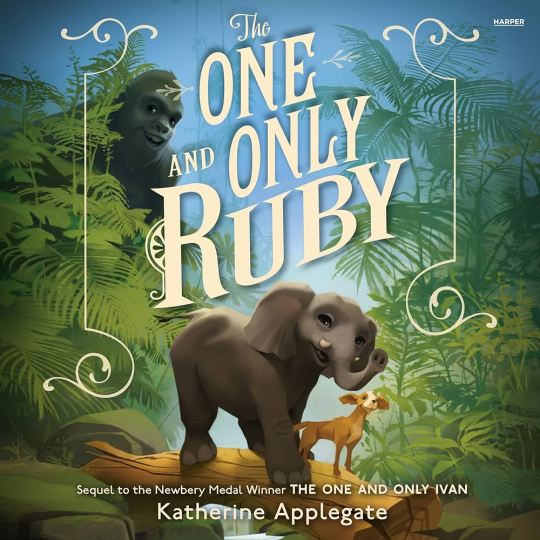
The One and Only Ruby
The newest book from the One and Only Ivan series. Much like The One and Only Bob this book was… fine. The original of the series was really wonderful and felt quite inspired, inspired by the real life story of a gorilla that’s kept in a small cage in a mall complex. The next two books take place after that one and each follows one of Ivan’s friends (Bob the dog and Ruby the baby elephant). A fun enough addition to the series, the art is still cute, and it has decent things to say about the hunting of endangered animals, but it was nothing amazing.
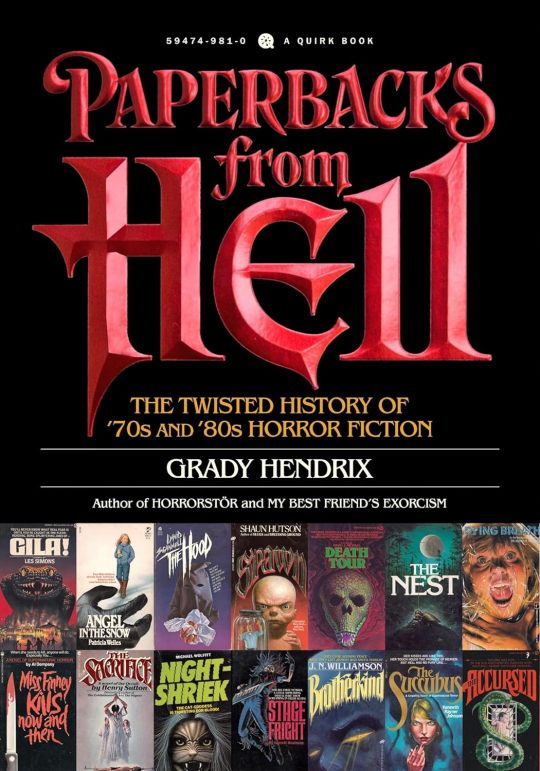
Paperbacks from Hell
Look, I really just felt the desperate need to read a bunch of Hendrix novels after being so violently consumed by Horrorstör. This is a nonfiction book in which Hendrix dives into the evolution and popular tropes of horror novels throughout the 1980s, with the cover art being the driving thesis throughout. You can tell how much he loves these weird, pulpy horrors and it makes you want to go and find a bunch of these and read them yourself. It really is an interesting book, even if you aren’t a great horror lover (which I wouldn’t consider myself).
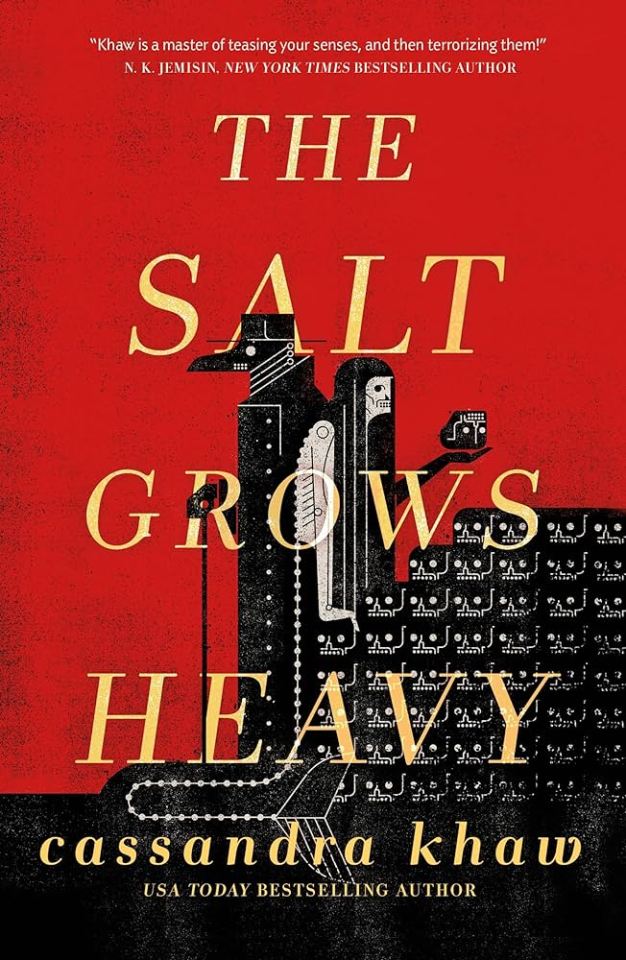
The Salt Grows Heavy
Now this is a fucking novella. An absolutely unhinged, body-horror rich retelling of both The Little Mermaid and Frankenstein. Yeah. After the complete destruction of her husband’s kingdom at the hands (and jaws) of her own children, the Mermaid finds herself travelling with a mysterious Plague Doctor. I won’t go further into this except to say that the way it portrays morality, life, death, and the mutability of flesh is just… something else. Would recommend. But not if you have a weak stomach.

Scott Pilgrim
A classic. I watched the new animated series with my brother and felt the need to go back and reread the entire original series. Absolutely perfect, no notes, continues to be one of my all time favourite graphic novel series. The magical realism is just *chef’s kiss*.
#book review#book reviews#queer lit#scott pilgrim#grady hendrix#horrorstor#my best friend's exorcism#the witcher#the last wish#kaiju preservation society#roald dahl#terry pratchett#discworld#the salt grows heavy#the one and only ivan#the one and only ruby#katherine applegate#mortimer rat race to space#hockey girl loves drama boy#canlit#canadian
14 notes
·
View notes
Text
Eric is indeed that protagonist that everyone loves instantly despite never doing anything particularly likeable. It's a particularly irksome character trait. You don't need to tell me that everyone likes your main character if you just make your main character likeable. The only person who's ever gotten away with stating outright "Everyone loves this character instantly and isn't even sure why" is Terry Pratchett, and that's because Carrot is a well drawn character who is charming and kind and polite and also the clash between his Mysterious Charisma and his reality as a Mortal Person is half the point of his character.
There. I said it. Eric Marshall is no Captain Carrot. Come at me.
Anyway, enter Kilmeny. Or, at least, enter Kilmeny's name. And also enter Kilmeny's disability and Eric's reaction to it.
It's bad. Eric's reaction is bad. You know, if you were curious.
So Mrs. Williamson tells Eric about Kilmeny, by which I mean Mrs. Williamson tells Eric about Kilmeny's mother Margaret. Margaret was the only child of her father's second marriage, and her mother died when she was born. She was raised by her two older half siblings and her father, all of whom worshipped and adored her. She was beautiful and headstrong and didn't have any interest in casual flirtations with men.
She is also haunting the narrative and possibly also literally haunting Lindsay:
“When I’m talking about her like this it all comes back to me, just what she was like and how she looked and spoke and acted, and little ways she had of moving her hands and head. I declare it almost seems as if she was right here in this room instead of being over there in the churchyard. I wish you’d light the lamp, Master. I feel kind of nervous.”
Again, this book so wants to be a horror story rather than a romance.
We then get what should in all rights be a deeply portentous piece of foreshadowing:
“This Ronald Fraser was a stranger from Nova Scotia and nobody knew much about him. He was a widower, although he was only a young man. He had set up store-keeping in Radnor and was doing well. He was real handsome and had taking ways women like. It was said that all the Radnor girls were in love with him, but I don’t think his worst enemy could have said he flirted with them. He never took any notice of them; but the very first time he saw Margaret Gordon he fell in love with her and she with him."
Now what does this remind us of? Perhaps the mysterious and handsome schoolteacher who has recently come to town and doesn't much mingle with the locals and doesn't deign to look at any of the women in town? Someone who has laid eyes on Kilmeny once and become fully obsessed?
And what happens to Margaret the moment she meets her man? "Margaret looked lovely that day, so gentle and womanly. She had been used to hold her head pretty high, but that day she held it drooping a little and her black eyes cast down" She is reduced to supporting cast in his life. Gone is her pride and fire and determination, replaced with the meekness of demeanor suitable for wives (rich person edition) in this book.
"They went to live at Radnor and for a little while everything went well. Margaret had a nice house, and was gay and happy. She dressed beautiful and entertained a good deal. Then—well, Ronald Fraser’s first wife turned up looking for him! She wasn’t dead after all."
Margaret Fraser lived the gothic novel this story wants to be, and she is haunting the narrative in revenge for it.
So after the big reveal, Margaret shuts herself up in disgrace. Mrs. Williamson notes very specifically that it is only the Gordons who think the whole affair disgraceful. The rest of Lindsay is very willing to believe that she was wronged and deceived and would have supported her if she'd let them. But she didn't let them, and neither did her family. They shut themselves away and, when Kilmeny was born, shut her away too.
“Kilmeny was born in the spring, but nobody ever saw her, except the minister who baptized her. She was never taken to church or sent to school. Of course, I suppose there wouldn’t have been any use in her going to school when she couldn’t speak, and it’s likely Margaret taught her all she could be taught herself. But it was dreadful that she was never taken to church, or let go among the children and young folks. And it was a real shame that nothing was ever done to find out why she couldn’t talk, or if she could be cured."
Waltzing lightly over the whole 'a mute girl couldn't possibly go to school with normal children!' thing, Mrs. Williamson makes a good and compassionate point here. It is bad that Kilmeny has been kept locked away! It's horrible, in fact! No wonder Kilmeny's playing was tinged with longing for freedom.
I am Concerned that this book is going to give her this freedom by sending her straight into Eric's arms instead of, you know, giving her literally any other friends.
#kilmeny of the orchard#kilmeny readalong#did maud talk herself out of writing a gothic novel or did her publishers force her out of it?
9 notes
·
View notes
Note
Mr. Gaiman, I was wondering something. I would never accuse Sir Terry Pratchett of even unintentional plagiarism, perhaps down more to my perception of the man than anything concrete, but I was trying to figure out if there was perhaps a common source that may have inspired two works.
There was an episode of Star Trek: Deep Space Nine that bore some very generalized similarities to the plot of Night Watch, in that a man is thrown back in time to a few days before an extremely important historical riot and ends up replacing one of the key figures in said riot, who died ignominiously beforehand. I have not finished the novel but some people who heard me point out the general similarities have remarked that there are further parallels. Perhaps there are, perhaps there aren't.
I was wondering whether you knew anything about the writing of Night Watch that might shed some light on this. Its publication postdates the premier of the episode by a few years but obviously I have no idea whether its composition did.
I don't have any reason to believe that you would know, other than having known Sir Terry, but I thought I'd ask. Best wishes!
Terry and I used to talk about what he was watching on TV all the time. If you'd found a relationship between an episode of Red Dwarf and a Terry book, I think that we could conclude that Terry had borrowed the idea. I don't ever remember him talking about any Star Treks other than the original series. But that doesn't mean anything. It's quite possible that Terry caught that DS9 episode or part of it and went "But they've missed the point! That's not the interesting bit!" and went off to write his own version. It certainly wouldn't have been the first time that Terry took his irritation with a piece of popular fiction and used it as the grain of sand in the oyster to build a pearl around.
Remember, though, Person Goes Back In Time and Finds That They Are Mistaken For Someone They Think Is Important is very much a standard trope in SF. I think the first time I encountered it was Michael Moorcock's Behold the Man. What's important about Night Watch is that Vimes is becoming the person who inspired Vimes, and that we get to see how the events of the Glorious 25th of May shaped the people we have known as adult, finished versions of themselves into those people.
As a general rule though, it's wisest to read the whole book before diving off after questions about the plot, otherwise you might look a bit silly if the book goes somewhere else.
2K notes
·
View notes
Text
The Nice and Accurate Observations of Good Omens by Elijowa, Fan
Being a Close Re-Watching of Season 1 in the Light of What We Now Know from Season 2
Containing therein Analyses of Crowley, Aziraphale and their Relationship throughout the Show
Episode One
~*~*~*~*~*~*~*~*~*~*~
So I have a confession to make. I've only ever watched Good Omens Season 1 twice and Season 2 once.
I know, I know, I need to get my priorities straightened out! How can I possibly be a fan if I've only got a mere 18h of watch-time under my belt? What can I say? Life keeps on getting in the way.
Anyway, I decided to treat myself with a close re-watching of Season 1 and see what jumps out at me now that we have new information from Season 2. You're very welcome to follow along or ignore these ramblings as you please!
So, without further ado, I present my thoughts on S1E1.
(Much, much more below the cut)
Let's start with the big one:
Crowley and Aziraphale don't appear to be in love - or even "in like" - during Episode 1.
So, picture this: I'm settling down with lots of warm fuzzy anticipation for all the stolen glances and hesitant hand gestures between Aziraphale and Crowley that I was sure I had either missed or forgotten about from my previous two viewings, and I make a surprising discovery:
There aren't any.
They barely seem to like each other in this episode - they are quite distant and snarky with each other (not the affectionate teasing banter that we've come to know and love, but almost a condescending snideness).
I can't see this version of Aziraphale trusting this version of Crowley to aim a live firearm at him (in fact, in the very next episode, he isn't even comfortable with the demon pointing a paintgun at him). And this version of Crowley would not dream of following Aziraphale around to help him fulfil his dream of being a professional conjuror, and actually actively discourages him from pursuing the notion (although, as many people have pointed out, it's amusing to think that this is because of happened the last time he did this).
So what gives? If there are people saying that the ending of S2E6 doesn't make sense (it does) because it betrays the millennia-long journey these characters have been on (it doesn't) - then I feel like we ought to be having that same discussion about the beginning of S1E1.
OK, OK. Obviously there are lots of 'out-of-universe' reasons for this inconsistency in the portrayal of C & A's relationship. This is the first episode of a new series and not all of the audience will be familiar with these characters; it's necessary to start them in the position of being hereditary enemies in order to give them room to grow and change; the show is a faithful adaptation of the book in which there's basically no romantic tension between the A & C at all, and Neil Gaiman is on record saying he didn't want to make any big changes this relationship, since he could sadly no longer consult with Terry Pratchett. Plus, S2 hadn't been written at this point, so there are undoubtedly details that Mr Gaiman didn't yet know with regards to the shared history of Crowley and Aziraphale while writing S1.
My current theory is that the infamous "You go too fast for me Crowley" line was NOT Aziraphale saying "please be patient with me because I need more time to catch up to where you are in our relationship". Rather, it was him saying, "I can't keep doing this. It was fun while it lasted but it's time I grew up, faced reality and put this silly little crush behind me. So goodbye forever." And he meant it.
But where's the fun in just talking about real-world reasons when we can come up with lots of juicy headcanons instead?!
From Crowley's point of view, I think that by now he'd be used to Aziraphale having periodic wobbles about their friendship. And so, from experience, he knows the best way to handle it is to back all the way off until Aziraphale has 'completed his process', is ready to re-engage again - maybe in a couple of hundred years - and things can go back to what Crowley thinks of as normal.
But knowing all this doesn't make it any less hurtful or frustrating to be rejected because of who he is. So maybe Crowley throws himself back into his bad boy role with a bit more venom than usual - still not doing anything directly evil per se, just enough to tick the boxes on some Hellish paperwork (bringing down mobile networks, designing the M25). Maybe he's more likely to foment discontent while simultaneously not really caring about anything he does either way, because what's even the point if he doesn't have his angelic foil around to wind up/impress?
And normally they would both have about a century or two to successfully work through their respective feelings, and so when they eventually reconnect they can slip back into their comfortable familiarity with relative ease. But the birth of the Antichrist screws up this schedule, truncates both of their coping processes, and means neither of them are quite ready to be best buds again. Hence their 'more prickly than what we might expect' attitudes towards each other in Episode One.
Hooo boy. I feel like I've barely even got half way through all the things I noticed and want to talk about in S1E1, but I think I need to save it for another time or we'll be here for all ineffable eternity. Well done if you made it this far and thanks for coming along for the ride!
#please be gentle this is my first proper attempt at writing anything meta#good omens meta#good omens s1#good omens rewatch#Aziraphale#Crowley#good omens headcanons
13 notes
·
View notes
Text
[Part 2 of 6]"Rescue Me": Being the Story of an Angel, a Demon, and the Second Coming (Fan fiction based on Good Omens, by Neil Gaiman and Terry Pratchett)
Part II: The Truth About Nightingales
A.Z. Fell and Co. Bookshop, Soho, London -- Five Minutes Later
He was running out of reasons to linger. Aziraphale knew that, even as he caught Muriel's worried glance his way. He couldn't very well say he dreaded going back to Heaven, or that he was so desperate to set eyes on Crowley again, he quit manufacturing reasons to be there almost as soon as he arrived and simply lapsed into silence, seated in the chair with his attention on the street outside the window.
He could see Nina waiting on her customers at the outdoor tables of Give Me Coffee or Give Me Death and wondered, fleetingly, if she and Maggie had any better luck with their relationship. He smiled as, a moment later, Maggie stepped out the café door, and stopped to share a brief kiss with Nina before crossing the street toward her own shop, takeaway coffee cup in hand.
Excellent. It was good to see he and Crowley made a difference in someone's life. The thought brought a fleeting curiosity to mind about Gabriel and Beelzebub. He kept the smile on his lips, refusing to give room to the brief flare of jealousy. He was happy for his predecessor and the Lord of Flies. It wouldn't do to wish for things he'd messed up all on his own.
"Y-Your... Mr. Fell?" Muriel's worried voice reached him, pulling his attention from the window. He lifted one eyebrow at them in question. "Have... Have I done something wrong?"
Aziraphale blinked in surprise. "Wrong? Whatever would make you think that, Muriel?"
"Y-you've been sitting there for a bit, see, but you haven't said why you've even come here, and the Metatron... I mean, I thought... Well, I thought maybe I'd done something."
"No, no, nothing of the sort. I'm just--"
The nearby screech of brakes and irate honk of a vehicle brought Aziraphale's attention around in a flash, and he very nearly sagged in relief as a familiar dark Bentley came to an abrupt halt just down from the café.
Crowley.
The Bentley's door popped open, and a familiar shock of deep red hair appeared, before Crowley unfolded his lanky frame from inside the machine and swung about toward the bookshop. Through the window, Aziraphale watched Crowley slowly reach up and remove his dark shades, his yellow eyes gleaming in the daylight as their eyes met and Aziraphale forgot his corporeal body needed air for just a moment, while his immortal soul finally remembered how to breathe.
With a smirk Aziraphale couldn't be sure was pleasure at seeing him, Crowley shoved the dark glasses back onto his face and sauntered toward the bookshop.
"I'll be leaving now," Aziraphale informed Muriel, already on his way to the front door. "Keep up the good work, Muriel."
"Um... Okay. I will." Muriel sounded confused, and given their vantage point, Aziraphale couldn't blame them for not understanding. He didn't wait around to explain, either. He and Crowley needed to clear the air, so to speak, and Aziraphale knew inside the bookshop was the exact wrong place for that, this time.
He stepped outside just as Crowley reached the curb. An attack of nerves slid over Aziraphale as Crowley's gaze raked him up and down, but gave nothing away behind those dark glasses.
"Leaving already, angel?"
Aziraphale flinched at the pain he heard behind the sarcasm dripping in Crowley's voice.
"Not at all, my dear Crowley. I thought perhaps I might convince you to accompany me to St. James's Park. There's something we need to discuss."
Crowley looked like he might be ready to deny him. After a long moment and a heaved sigh of exasperation, the demon swung around on his heel and stalked toward the Bentley, instead. "Well, come on, angel. I haven't got all day."
******
St. James's Park, London -- Ten Minutes Later
Crowley slouched onto "their" bench as if poured there and stared hard at his angel as Aziraphale rambled and stumbled all over his words, just like he always did when nervous or excited. The angel hadn't shut up since they got in the car, but Crowley still hadn't figured out a damned thing he was saying. His heart pulsed loud in his ears and pounded against the inside of his chest like a damned bird trying to beat itself senseless. He shouldn’t be feeling so... so... so damn grateful, right? He figured at this point he ought to still be completely, bloody pissed off at Aziraphale for leaving in the first place. Only...
Only, how could he be angry when face-to-face with such an adorable creature? He didn’t imagine Satan Himself could be furious very long, when confronted with the pure, radiant joy beaming at him from his angel, right now.
Ah, for bloody... Scratch that thought. He wasn’t letting anything in Hell anywhere near his angel, ever again. Heaven, either, if he had anything to say about it.
A smirk pulled across his lips.
"So, angel," he let the endearment roll off his tongue, the rightness sinking through him, and decided right then and there he wouldn’t be letting this months without talking thing go on ever again. Still, he couldn’t help a needling, "how’s that ‘making a difference’ thing going for you? Avert the end of the world, yet?"
Aziraphale stuttered to a stop, and the distress that slid over his face had Crowley wanting to snap his fingers and rewind time just enough to cage the hurtful words before they escaped. After all, he knew just how painful words could be, didn’t he?
"Sorry, angel," he muttered, his words lost beneath Aziraphale’s sudden onslaught of miserable speech.
"Oh, Crowley," his name, spoken with such heartbreak in that beloved voice, captured his attention so fully it took him a moment to realize he’d missed half of what else his angel said.
"Wot? Come again?"
"I said," Aziraphale huffed out with a glare that was quite possibly the most adorably ineffective display of annoyance in all creation, "I’m afraid I’ve rather made a mess of things, Crowley."
A sarcastic smirk he couldn’t contain flickered at the edges of Crowley’s lips for a moment. "Finally work that one out, did you?"
Exasperation colored Aziraphale’s cerulean eyes. "I’m serious, Crowley. I’m trying to apologize."
Wry glee tangled with Crowley’s thundering heartbeat, and he fought to stay in his careless sprawl as he eyed Aziraphale where the angel sat stiffly on the bench beside him – careful, Crowley couldn’t help noticing with a pang of disappointment, to keep significant space between them. He shoved that disappointment down deep, and bantered back, "It’s going to take a lot more than a ridiculous little dance to apologize for leaving me, angel."
He heard the sharp intake of Aziraphale’s breath, watched emotions chase each other across the angel’s expressive face, not settling on any one long enough for Crowley to read. What the Heaven was his angel thinking?
"I didn’t leave–"
"Sure bloody looked that way to me, angel."
"Well, yes, technically, I mean, I did leave, I suppose, but..." Aziraphale drew in a deep breath, his eyelids squeezing together tightly for a moment, before he released his breath on a sigh, his normally properly-aligned shoulders drooping as his head hung forward. Crowley had to strain to hear his next words, and even then he wasn’t sure he could trust his own ears. "I did it for us, Crowley."
This jerked Crowley forward and onto his feet, uncertain if what he felt was more anger or disbelief. "You wot? You fucking think that was for us, angel? You barely stopped to take a breath before–"
"I forgave you." Aziraphale looked up at him with earnest blue eyes that nearly discorporated Crowley where he stood. Pain and rage came flooding back, and he leaned down, taking hold of the lapels of Aziraphale’s pristine white jacket in trembling fists.
"Did I ask to be forgiven? Have I ever asked to be forgiven, angel?"
"No, but–"
"I don’t want your fucking forgiveness, angel." The words flew from him, shoved out by six months of twisting emotions writhing in his chest. "I wanted you to choose us. To choose me, just as I am." He let go, backing off a step as he fought to contain himself. He wasn’t about to do this. Not again. Still, the words wouldn’t stop – unlike last time, he couldn’t trammel them in. He had nothing left to lose. "But I was never good enough, without Heaven, was I?"
He took a quick step back in surprise as Aziraphale bolted up from the bench, shock and agony on his soft features. "That’s not what I meant, Crowley. I just want... I wanted the world, and Heaven, to see you the way that I do. I want them to see your heart." Aziraphale's hand lifted, coming to rest right above Crowley's heart, and Crowley feared for one second his angel might feel the thundering he heard in his ears. Aziraphale only sighed and patted his chest with a murmured, "Your very good heart. I didn’t want to go back without you. I almost didn't go, you know. But I thought... You looked so angry when you left, when I saw you standing there, I wanted to let you rescue me, so you'd be happy again. I..." The angel stopped, his mouth trembling as if he was moments from crying, before he drew in a deep breath, and his blue eyes connected with Crowley’s. "I miss you."
As apologies went, it wasn’t half bad. Crowley turned away, breaking the contact between them and trying to gather himself before he did something utterly stupid, again. He already knew his angel wasn’t back on Earth permanently. He ground his teeth together and did as he learned from the humans, counting backward from ten before asking, "Why’d you come back?"
Aziraphale didn’t even miss a beat. "Because you never came to rescue me. How else was I supposed to apologize? How else was I supposed to say..." He bridged the space between them and his hands connected with Crowley’s chest again in a soft touch the demon had missed every day these last, lonely months. "I love you, Anthony. Just as you are."
Time hung between them, broken only by the warbling song of a nightingale, as the shards of a vessel shattered millennia before fused back together under the radiant, golden touch of his angel. Swallowing back tears that just weren’t demonly to shed, Crowley managed a hoarse, "This mean you’re coming back forever?"
A pause. Then Aziraphale sighed heavily. "I’m afraid not. Not yet, at least. But I need your help, Crowley."
Crowley wasn’t sure what to make of that. "Don’t you have a whole Heaven full of angels to order about, now?"
It was Aziraphale’s turn to glance away, but not before Crowley caught the flash of pain, sorrow, and... loneliness?... in them. Still, his angel always had a brave face and a smile at the ready. Now was no different. "Of course."
Yeah, Crowley wasn’t buying that for a second. He let a little of the worry he'd felt since the moment he first saw his angel slip out. "You look gaunt, angel. Just what the Heaven has been going on up there?"
Aziraphale winced, his touch falling away. "I’m afraid I’ve got myself into rather a mess. I thought I could make a difference..."
"And, let me guess," Crowley dragged out the words as he tugged Aziraphale back to resume their seats, though much closer than before. "It didn’t go as planned, and the lot of them still want their bloody war."
Aziraphale blinked at him. "How did you know?" Crowley sighed, tipping his head back to glare up toward the heavens. "Funny you should ask. I have something to tell you, angel. Something I should have told you months ago, about when I was last in Heaven, the night of your little meeting..."
#good omens 3#good omens fandom#azicrow#aziraphale#ineffable spouses#go2#aziraphale x crowley#aziracrow#good omens s2#fanfic#inefabble husbands#fandom#art#ace romance fanfic
14 notes
·
View notes
Text

The Twenty Book Challenge:
If you could only keep 20 books (physical/ebook/audio), which would be the ones you would keep?
Rules are simple:
1 book per author. 1 book per series. Tag #twenty books challenge
Tagged by @theinquisitxor
Tagging @lizziethereader @therefugeofbooks @ofliterarynature @franticvampirereads @midnightlibrarymouse @thequeerlibrarian and @magnetarmadda because I'm evil
List of books (and reasoning) under the cut!
The Amazing Adventures of Kavalier and Clay - Michael Chabon (rereadable)
Middlegame - Seanan McGuire (rereadable, her best work, can be plummed for writing tricks)
Possession - A.S. Byatt (rereadable, can be plummed for writing tricks)
Dealing with Dragons - Patricia C. Wrede (childhood fave, will never not be delightful)
How to Be a Victorian - Ruth Goodman (for reference)
Or What You Will - Jo Walton (rereadable, can be plummed for writing tricks)
The Chicago Manual of Style, 15th ed. (I occasionally take side gigs as an editor, this is a necessity)
The Riverside Chaucer (maximal story-to-book ratio, rereadable, one day I'll finish it)
The Kitteridge Complete Shakespeare (maximal story-to-book ratio, rereadable, one day I'll finish it)
The Hunter's Moon - O.R. Melling (childhood fave, will never not be delightful)
The Hobbit - J.R.R. Tolkien (childhood fave, rereadable)
Hogfather - Terry Pratchett (rereadable, will never not be delightful)
The Name of the Rose - Umberto Eco (rereadable)
The Goblin Emperor - Katherine Addison (rereadable, will never not be delightful, pretty cover)
Nettle and Bone - T. Kingfisher (rereadable, will never not be delightful, pretty cover)
Jonathan Strange and Mr. Norrell - Susanna Clarke (rereadable, can be plummed for writing tricks)
Good Omens - Neil Gaiman and Terry Pratchett (rereadable, will never not be delightful, pretty cover) (this is a Neil Gaiman book, obviously)
The Silk Roads - Peter Frankopan (for reference)
Dancing With My Daughter - Harold Rhenisch (family connections)
Miles in Love - Lois McMaster Bujold (rereadable, will never not be delightful)
48 notes
·
View notes
Text
⚠️WARNING: GOOD OMENS 2 EPISODE 1&2 SPOILERS UNDER THE CUT!!⚠️
I need to get my live reactions out because I am LOSING IT. Do not read beyond this point if you don’t want spoilers for the first two episodes!!!
I am going insane after the prime premiere so here are my insane ramblings externalized:
THE COLD OPEN IN EPISODE 1 KILLED ME IN MY SEAT INSTANTLY
THE NEBULA. ANGEL CROWLEY (whose name we don’t get, ofc, that made me laugh). HE WAS SO EXCITED AND AZIRAPHALE’S “I WOULD HATE TO SEE YOU GET INTO TROUBLE” AND THE W I N G.
The fjuckin. WING. I AM UNWELL. I AM GOING INSANE JUST THINKING ABOUT IT
AAAAAAAAAA
And then the title music played and I apologized to my friend that I dragged to the premiere for being Extremely Not Normal. And then told her it Would Get Worse.
GOOD OLD FASHIONED LOVER BOY, IM-
Maggie: Oh nooooo, we’re locked in the coffee shop together,,, what will we doooooo (every fanfic author in the room just got so many ideas.)
Hm. Lindsey, huh? Hmmmmm.
That’s uh. Not a normal amount of texts. That seems a bit Not Great. I’m watching you Lindsey. I haven’t seen you yet but I am watching
THE APOLOGY DANCE AHSHDJFJF!!! Stan Pines and Crowley have something in common apparently. Also. Aziraphale what do you mean you had to do it in 1941. what were those other times. Where did this come from. I need EXPLANATIONS.
There’s no way their two-halves-make-a-whole miracle is what set off alarms in heaven. Gabriel Absolutely Did Something.
There are too many flies in the book shop for this to NOT come back to Beelzebub somehow
Re: Beelzebub- why ask Crowley to keep them in the loop if Shax already asked him that? Are they just not communicating, or is this somehow connected to Beelzebub???
My heart fuckin stopped when Gabriel started singing Everyday.
Crowley. Crowley I need you to repeat that bit about Jane Austen. CROWLEY YOU CAN’T JUST DROP THAT, I-
Good to know that scene overlooking the ocean was in fact as emotionally intense as expected. aaaAAAAAA
Re: Job minisode- “I’m a demon. I lied.” Gives a whole new fuckin context to the “Would I lie to you” “You’re a demon” from season 1. AaaAAAA
Another one from that minisode: Aziraphale thinking that heaven could be convinced to not destroy the earth if they just understood properly in season 1… aziraphale being disgusted by human food and drinks until he was tempted to try it and understood… Mr Gaiman I am in your walls for this
Anthony J “You can’t kill kids” Crowley strikes again. And we still don’t get clarification on what kind of kids he meant, which is incredible honestly. Plus, the goats were adorable :)
How is the jukebox doing the same thing as the Bentley. Is this a “every record eventually turns into Everyday in the same way music left in a car too long turns into Best of Queen” or is this a Pointed Thing
Have I mentioned that I would die for Muriel? I would die for Muriel. It has been two episodes and I simply adore the low ranking sunshine angel.
They are so fucking married
“OUR CAR” “OUR BOOKSHOP” they are so fucking married. Crowley why are you sleeping in your car, pls it’s OUR bookshop 😭😭😭
Aziraphale took drivers tests before they were cool (aka mandatory) 🙄 come on Crowley keep up
Aziraphale driving the Bentley is something I didn’t know I needed and yET-
First the “naked man friend” comment and then a random guy stealing the seat across from Aziraphale in the pub… rip crowley
Gabriel with the Terry Pratchett paperback… Gabriel reading off the first line of Good Omens… wait the book exists in the world of the show- Aziraphale owns the book in the world of the show- what
Never thought “Archangels don’t know where babies come from” would be a plot point and yet. Here we are.
Pausing one more time to go absolutely feral over the ending of the Job minisode because that played my heartstrings like a FIDDLE. “I’m like you now” “I’m a fallen Angel” and “I’m not here to take you to hell, don’t think you’d like it”; “I’m on my own side” “Sounds lonely” and “I’m a demon. I lied.”; how heckin PRETTY THE WHOLE SCENE WAS
someone please send help because idk how I’m going to be normal after this.
Okay, scheduling this for a little after the episodes drop and spoiler tagging like crazy! SOON, THE REST!!!
#good omens#good omens s2#good omens s2 spoilers#goodomenss2spoilers#gos2 spoilers#gos2#good omens liveblog
12 notes
·
View notes